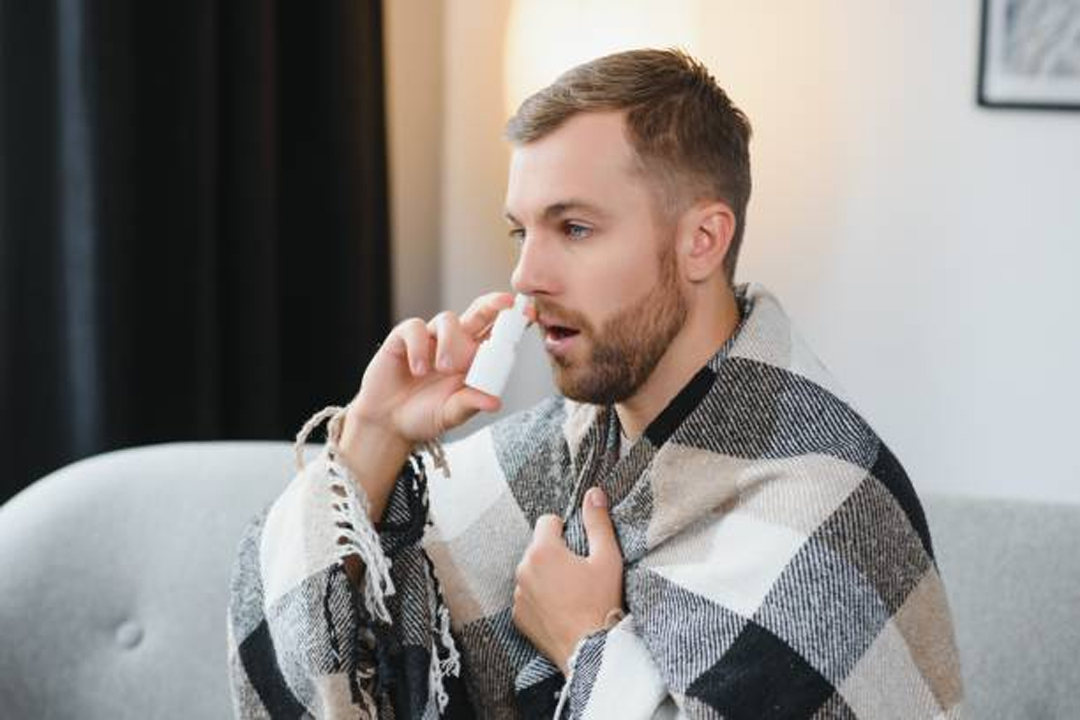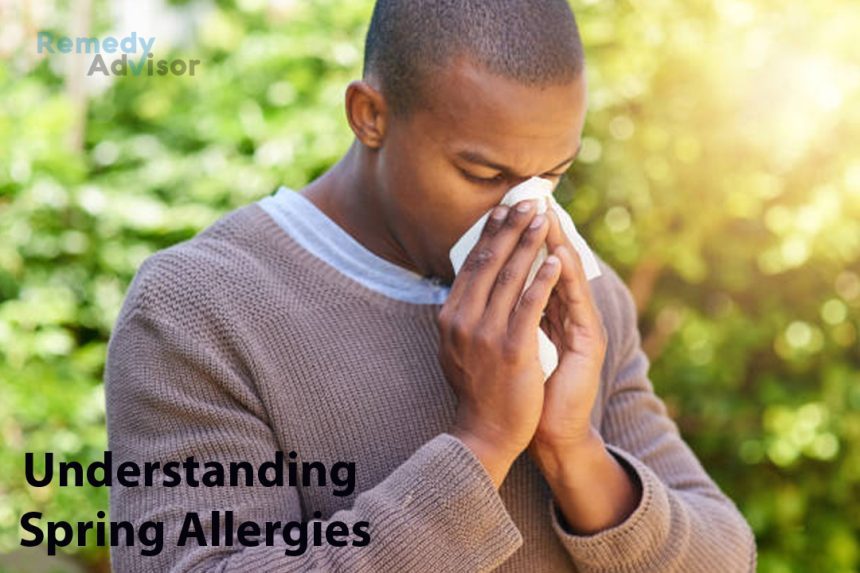If you suffer from seasonal allergies as 22 million Americans do both established and new treatments can relieve your allergy symptoms without putting you to sleep or forcing you to stay indoors.
How allergies start
Allergies occur when you inherit a genetic disposition to form allergic antibodies upon coming into contact with normally benign substances.
If one of your parents has an allergy, you have a 30% chance of being allergic, too. If both parents suffer from allergies, your risk jumps to 50% to 75%. If neither parent has allergies, your chance is only 13%.
You inherit and pass along only the propensity for allergies, not the specific allergies themselves.
Example: If your mother is allergic to cats, you may not develop the same allergy but you may be allergic to pollen instead.
Still, having allergy-provoking genetic material isn’t enough to prompt sniffling and sneezing. You must also be exposed to various allergens, such as dust mites, tree, grass or weed pollen, animals mold, feathers, insect stings and certain foods. The allergens are so widespread that they’re really impossible to avoid.
Example: The most common causes of hay fever during early spring are tree pollens. Later in the spring, grass pollens are typically to blame. And in the fall, weed pollens spur many people to suffer allergic reactions.
How your body fights back
After you come into contact with an allergen, your body regards it as a foreign object. When your body next detects this substance, your immune system launches an all-out attack to get rid of it. During this offensive, chemicals such as histamine, leukotrienes and prostaglandin D2 are released.
These chemicals and the ensuing nasal inflammation are responsible for the allergy symptoms of congestion, runny nose and eyes, sneezing and itching in the nose, throat, eyes and ears.
Traditional treatments
• Avoid allergy triggers.
This is the single most effective and inexpensive means at your disposal to ward off allergy symptoms. Here’s how to do it…
• Avoid outdoor activities between 5 a.m. and 10 a.m.
That’s when pollen counts are highest.
• Shower and change clothes when you come in
Shower and change clothes when you come in from working or playing outdoors. Pollen can cling to clothing and rub off on furniture.
• Close windows and doors and run an air conditioner in the house and car
Close windows and doors and run an air conditioner in the house and car to filter pollen from the air you breathe. Avoid window and attic fans, which are notorious for drawing pollen into the house.
• Antihistamines and decongestants
Antihistamines and decongestants are the mainstays of seasonal allergy treatment. They’re very effective for relieving symptoms quickly.
• Antihistamines
Antihistamines don’t prevent the allergic reaction, but they stop its symptoms, such as sneezing and watery eyes, by interfering with the action of histamine.
A slew of nonprescription and prescription antihistamines is available today. They are generally effective but may cause drowsiness or dizziness.
Caution: Don’t take antihistamines at all if you have glaucoma, a persistent cough or an enlarged prostate.
• Decongestants

Decongestants available with and without a prescription relieve nasal stuffiness by constricting blood vessels in the nose. They can cause dizziness or nervousness and can make it hard to sleep. Cautions…
• Don’t use decongestants
Don’t use decongestants if you have heart or thyroid disease, high blood pressure, diabetes or an enlarged prostate, without discussing it with your physician.
• Don’t use over-the-counter (OTC) decongestant sprays
Don’t use over-the-counter (OTC) decongestant sprays for longer than five days. They may actually cause increased stuffiness.
• Steroid nasal sprays
Prescription steroid nasal sprays such as Nasacort, Flonase, Beconase, Vancenase and Rhinocort reverse swelling in the nose and block the allergic reaction.
When you spray these steroid nasal sprays into your nose once or twice a day, they also stop the twitchiness that plagues allergy sufferers and makes the nose more likely to react to allergens and irritants such as cigarette smoke and other pollutants.
These steroid sprays work well when combined with antihistamines and decongestants. However, if you can’t tolerate those drugs, they can also be used alone.
Important: Start using a steroid nasal spray one or two weeks prior to the allergy season. This will help to prevent the inflammatory process before it begins. Many sufferers use nasal sprays daily for several months at a time. Steroid sprays cause few side effects if used at recommended doses.
• Allergy shots
If your allergy symptoms are severe you have asthma you get frequent ear infections or you don’t respond to oral or nasal allergy drugs immunotherapy is another option.
Procedure: You’ll be given a series of shots that contain progressively larger doses of allergen extracts.
You’ll likely build up immunity to these allergens. You may, however, still need to take oral or nasal drugs to help control your allergic symptoms.
Medications
• Allegra
Allegra is non-sedating prescription antihistamine.
• Astelin
Astelin is a nasal antihistamine spray. It’s available only by prescription. Astelin works within a few minutes after spraying, lasts 12 hours, doesn’t cause drowsiness and has few side effects.
• Claritin Reditabs
Claritin Reditabs dissolve almost instantly when placed on the tongue. This means that they can be taken by children and adults who otherwise cannot take pills.
• Nasalcrom
Nasalcrom is a non-steroidal nasal spray that has been used for years and is now available without a prescription.
Nasalcrom is extremely safe and effective at preventing the allergic reaction from taking place, reduces inflammation in the nose and doesn’t cause drowsiness.
Most sufferers use it three to four times a day, starting a week or two before the allergy season begins.
• Zyrtec
Zyrtec is another prescription antihistamine. It may cause some drowsiness though not as much as OTC antihistamines and is safe and effective.







